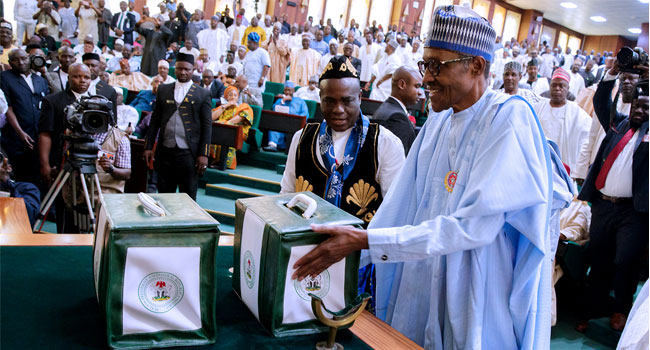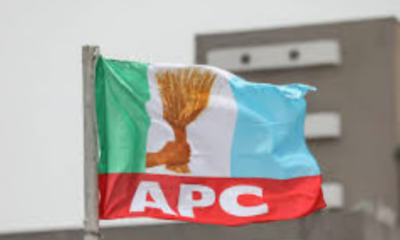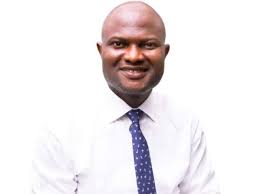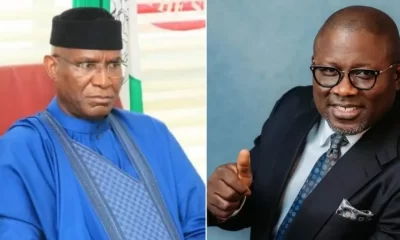By SUNDAY ODIBASHI
The 2018 budget presentation by on Tuesday, November 7, 2017, left several basic economic issues untouched relating to the policy thrust of the All Progressives Congress (APC) to boost Nigeria’s development, particularly, reactivating the production capacity of the economy. More importantly, the budget content was also contained inherent contradictions and deliberate disarticulated conjectures on the global economy.
It sounded appalling that President Buhari after two and a half years in office and making a third budget presentation to the two Chambers of the National Assembly is still blaming the
Peoples Democratic Party (PDP) on certain areas of tentative burden of governance.
Invariably, the PDP is responsible for any area the APC Government has failed in the governance of the country, even when the PDP was not party to the ‘faulty’ decisions of the government. The impulse of repetitive blame trading is crystalizing to the crescendo that the President may soon run out content and begin to blame the APC Government or his own administration.
The president had on self-praise on the recession declared: “And from the recovery that we are seeing today, it is clear that we made the right decisions.” A little further on the budget speech, the President contradictory declared: …the relatively higher crude oil prices supported our economic recovery.”
More so, the political economy of the international system was also misinterpreted in the budget speech.
According to president Buhari,”2017, so far, has been a year of uncertainty on many fronts across the world. Whether it is Brexit, the crisis in the Korean Peninsula, or indeed, the political uncertainty in key oil producing nations of the Middle East and South America, we can all agree that these developments have in one way or another impacted Nigeria’s economic fortunes.”
The president and his team forgot to tell Nigerians that remains the year that China’s economic growth and expansive production strength posed serious threat to the economies of Europe and America. In 2017, China applied for Macro Economic Status in Europe and America, the European Union Parliament turned down the request, arguing that if china secures Macro Economic Status, the economies of European countries will suffer massive job loss and low production. America simply argued that china is not qualified for Macro Economic Status which will allow massive export from China to countries that have singed into the MES. At the time Europe and America turned down the request, over 100 countries from Africa and Asia have signed the MES.
Again, the crisis in the Korean Peninsula is rather positive; demonstrating the emergence of North Korea as a Super Power competing strongly with America and Russia in the global arms race. The tension created by the US was to threaten, intimidate North Korea and relegate the country to the peripheral zone of super powers in the global arms race.
Paradoxically, Nigerians expected positive extrapolations by the president from these global phenomena to spur the government in encouraging technological development towards rapid economic growth and production innovations.
The fiscal pronouncement presents policy that discountenances production and wealth creation economy.
The President acknowledged that that proposed 2018 budget of N8.612 trillion reflects a nominal increase of 16 per cent higher than the 2017 Budget. According to President Buhari, “In keeping with our policy, 30.8 per cent (or 2.652 trillion Naira) of aggregate expenditure (inclusive of capital in Statutory Transfers) has been allocated to the capital budget.”
The 2018 budget has a deficit of N2.005 trillion or 1.77 per cent of GDP.
The government plans to finance the deficit partly by new borrowings estimated at N1.699 trillion. Fifty per cent of this borrowing will be sourced externally, whilst the balance will be sourced domestically, the president said. The balance of the deficit of N306 billion is to be financed from proceeds of privatisation of some non-oil assets by the Bureau of Public Enterprise (BPE).
The N8.612 trillion budget proposal for 2018 comprises: Recurrent Costs of N3.494 trillion; Debt Service of N2.014 trillion; Statutory Transfers of about N456 billion; Sinking Fund of N220 billion (to retire maturing bond to Local Contractors); and Capital Expenditure of N2.428 trillion (excluding the capital component of Statutory Transfers). The budgetary allocations indicate that debt servicing of N2.014 trillion is competing strongly with Capital Expenditure of N2.428 trillion. The N5.508 trillion aggregate allocation from the debt servicing of N2.014 trillion and recurrent expenditure of N3.494 trillion, clearly shows that the 2018 budget is skewed strongly towards providing more funds for less productive activities in the country. The N5.508: N2.428 trillion ratio depicts higher consumption to lower production in the domestic economy; hypothetically, faulting other statistics of GDP, inflation rate, etc. The greater allocation to Works and Transport Ministries also indicate that the budget will do little in developing grassroots economies. Apparently, the budget was designed to promote modernization rather than traditional development of the Nigerian economy.
In the overall, if the 2018 budget needs further review or adjustments to reflect reality.














 Business7 days ago
Business7 days ago
 Business6 days ago
Business6 days ago
 Education6 days ago
Education6 days ago
 Crime7 days ago
Crime7 days ago
 Football12 hours ago
Football12 hours ago
 Covid-196 days ago
Covid-196 days ago
 Business7 days ago
Business7 days ago
 Latest4 days ago
Latest4 days ago
